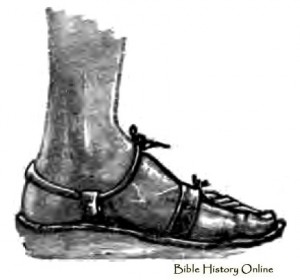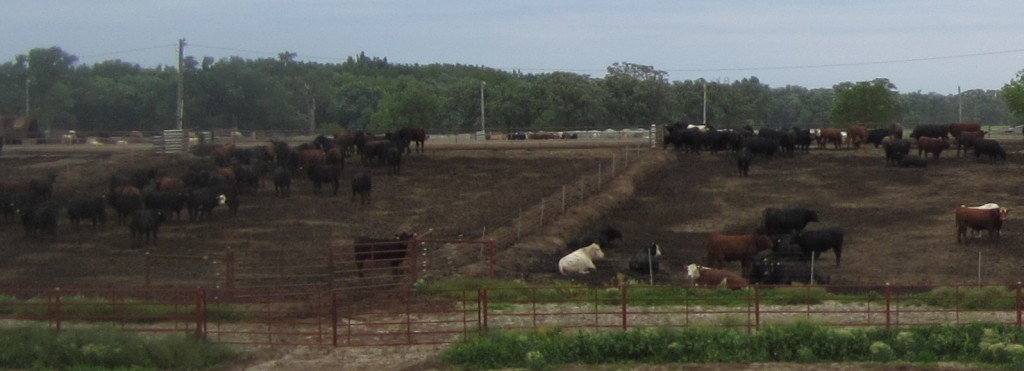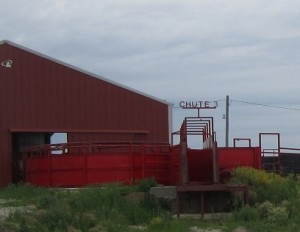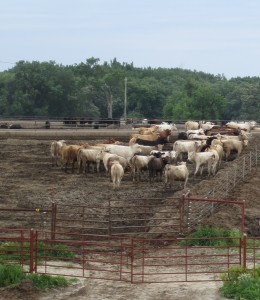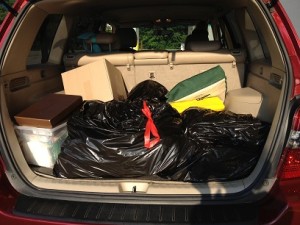 One of 6 stops on my errand list today was the local Goodwill store, not to shop, but to drop off. Usually a heap of guilt accompanies this process: (1) I shouldn’t buy so much; (2) the things I buy ought to be better used; (3) giving away partially used items might insult those taking them in; (4) I have too much, while others have too little.
One of 6 stops on my errand list today was the local Goodwill store, not to shop, but to drop off. Usually a heap of guilt accompanies this process: (1) I shouldn’t buy so much; (2) the things I buy ought to be better used; (3) giving away partially used items might insult those taking them in; (4) I have too much, while others have too little.
What is the right way to decide what we do or don’t need?
 I love the scriptural description of God’s care for the Israelites as they wandered back and forth in harsh desert conditions for 40 years. Being the practical God he was, he knew they wouldn’t come across any markets during those years and wouldn’t have a way to find water, food, or shelter. So he provided everything they needed, even clothes.
I love the scriptural description of God’s care for the Israelites as they wandered back and forth in harsh desert conditions for 40 years. Being the practical God he was, he knew they wouldn’t come across any markets during those years and wouldn’t have a way to find water, food, or shelter. So he provided everything they needed, even clothes.
For example, at the end of their journey, he pointed out that their clothes hadn’t aged in 4 decades. It wasn’t just good luck, he told them. It was his direct doing. And he had an important reason for preventing even one sandal strap from breaking. As he put it, “…so that you might know that I am the Lord your God.” He wanted them to recognize him in action, to realize he was sustaining them personally through those difficult years. (Deuteronomy 29:6)
The Lord is still doing this kind of thing, not necessarily by way of miracle-clothes or super-sandals but by continuing to meet our needs. And that’s the key word: needs. He inspects our lives, each of us, and makes a divine analysis of what those are and then meets them.
In Philippians 4 Paul says, “My God shall supply all you need.” The obvious conclusion is that if we don’t have it, we didn’t need it. I remember my children asking for things unendingly and telling them, “But you don’t need that.”
Their responses were always the same: “But I waaaant it!”
We must sound much like wailing children to God when we complain about not having everything we want, especially if we point to someone else and say, “But why can she have it and I can’t?” He has his reasons.
He could have clothed the Israelites in new outfits that fell from heaven just like the manna and quails he sent exactly that way. Instead he let them make do with what they already had, causing each item to remain new-like instead, not as fun as new wardrobes but definitely a need met.
When we look for God’s near-presence in our lives, it’s best to remove our preconceived ideas of what he should be doing for us and let him decide what we need and how to provide it.
Maybe he’ll even do it by directing us to purchase some gently-used clothing from a local Goodwill store.
“The Lord says, “During the forty years that I led you through the wilderness, your clothes did not wear out, nor did the sandals on your feet.” (Deuteronomy 29:5)

